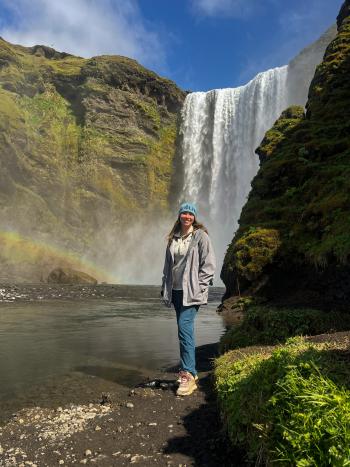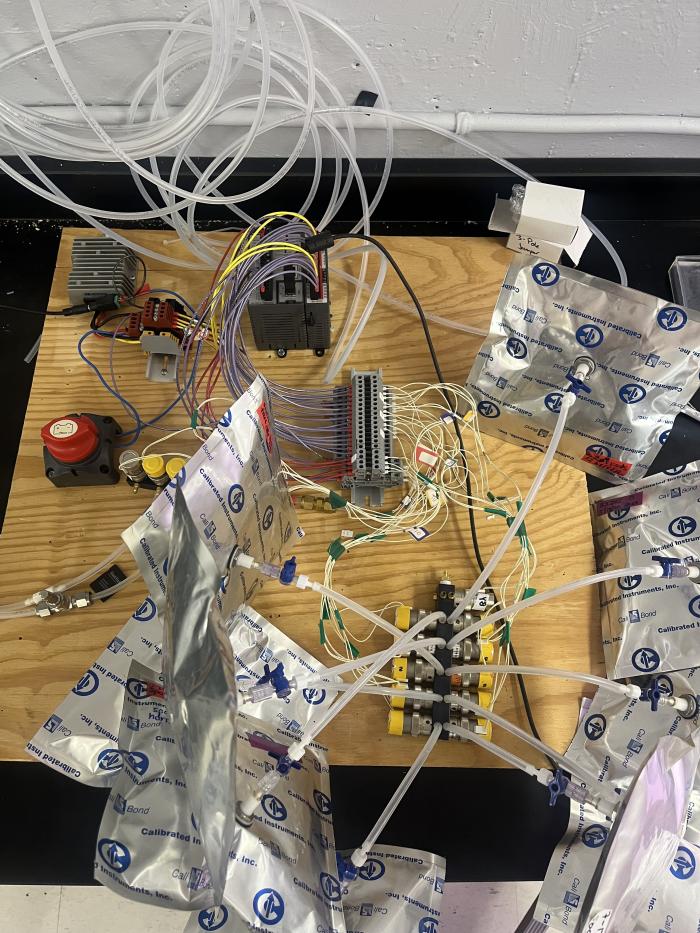
As an Environmental Studies senior, Kiki Masters spent the summer looking underground. With mentorship from Tim Gallagher, PhD in the Department of Earth Sciences, Masters joined �þ���ҹ����ӰԺ��ѹۿ� State’s Summer Undergraduate Research Experience (SURE) program, supported by the Environmental Science and Design Research Institute (ESDRI), to study how carbon moves out of soils and what that means for climate change.
“My research looks at how carbon moves out of soils,” Masters explained. “I collect gases from the soil at different depths and in areas with different amounts of vegetation. Then I measure how much carbon is in the soil and see how it changes across these conditions. Soil carbon is important because it stores a lot of carbon that would otherwise be in the atmosphere. But in recent decades, land use and climate change have reduced how much carbon soils can hold. By studying soil respiration, we can better understand why soils are losing carbon and how land and ecosystems might be managed to keep more carbon stored.”
For Masters, one of the most exciting parts of the project was seeing the data come to life. “I recently acquired some of results from the gas I collected, and it was very interesting to see how carbon is much more abundant in the soil depending on where you collect the gas from,” she said. “It was also very cool getting to build the panel that I have picture that helped me analyze my gas bags.”
The work also required learning new technical skills. “I had to learn a new coding program that automated the analyzation of my gas so that was a little challenging to learn at first,” Masters noted. “I had experience in coding beforehand, but this one was very different from my previous experience.”

Support from the SURE program played a big role in her ability to focus on research. “The SURE program allowed me to have some income throughout the summer which tangentially helped because that meant I didn't have to try to do outside work while doing my research at the same time,” she said.
Between collecting soil gases, running samples through her custom-built panel, and tackling new coding tools, Masters gained both hands-on technical expertise and a deeper understanding of how soils shape our planet’s carbon cycle.
